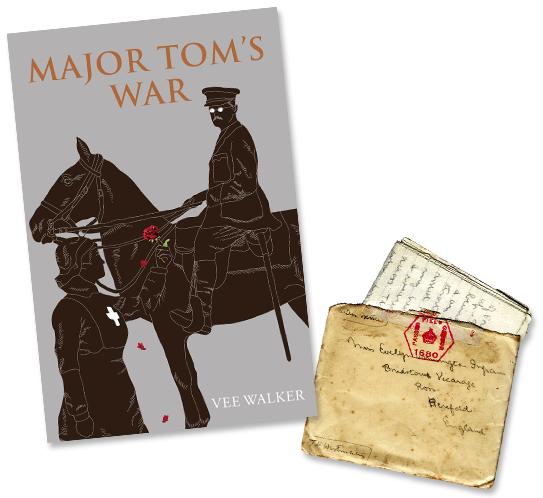Image
© Derome family
On my last visit to Bavay two members of the Derome family kindly brought me a box of treasures to sift through. Among many fascinating papers was a small order of service from the mass for the life of the Abbé Jules Lebrun. He looks exactly as I imagined him, tall, austere, devout. It is fitting that he should have died while saying mass during the second war - perhaps with Gaston among his congregation.
Place
This chapter finds Gaston still a prisoner of the occupying forces in the château of Saint-Quentin and sees him returning to Bavay by train, quite a feasible journey at the time. Railway stations were heavily guarded and passes inspected but the trains still ran.
People
We now meet Commandant Oberst Schlaghecke, a fictional character whose name has been borrowed by a German friend, Falk Schlaghecke, who has helped many members of my family through his stellar physiotherapy work!
Like the real Falk, our Commandant here is tough but fair, and Gaston finds his encounter with him unnerving in the extreme after the more unpredictable nature of Horstberg. Schlaghecke's job as an intelligence commander is to extract a confession, information or money - or ideally all three.
Fact and Fiction
The fine Gaston pays is real and documented. He was a relatively wealthy man but it was still a shocking amount of money, and his fertiliser factory, if used as a billet, can barely have been functioning.
Schlaghecke is a fictionalised real person.
Lebrun, Maître Corbeau as I have dubbed him, really did save Gaston's life by offering his own in his stead. Accounts of this vary. Some have Lebrun taken away from Bavay instead of Gaston. From the outset however I have had a very clear image in my head of Lebrun, the obstinate old priest, turning up at the château, demanding entrance and praying loudly and making a nuisance of himself, refusing to leave until Gaston is released.
This is still early in the war. The Germans, although rattled by the concealed Englishmen in the forest, are still trying to remain courteous to the population of occupied areas, which is why Horstberg's overstepping the mark with the old mayor of Locquignol finds disfavour.
If this incident had happened later in the war it is unlikely that either priest or mayor would have survived it.


